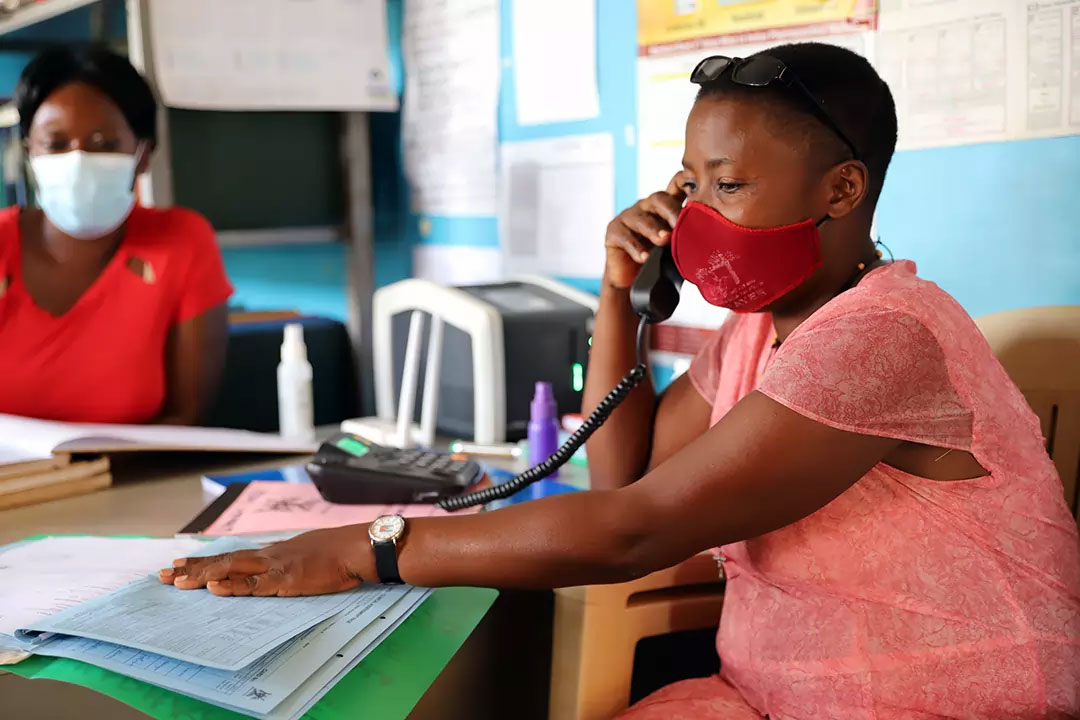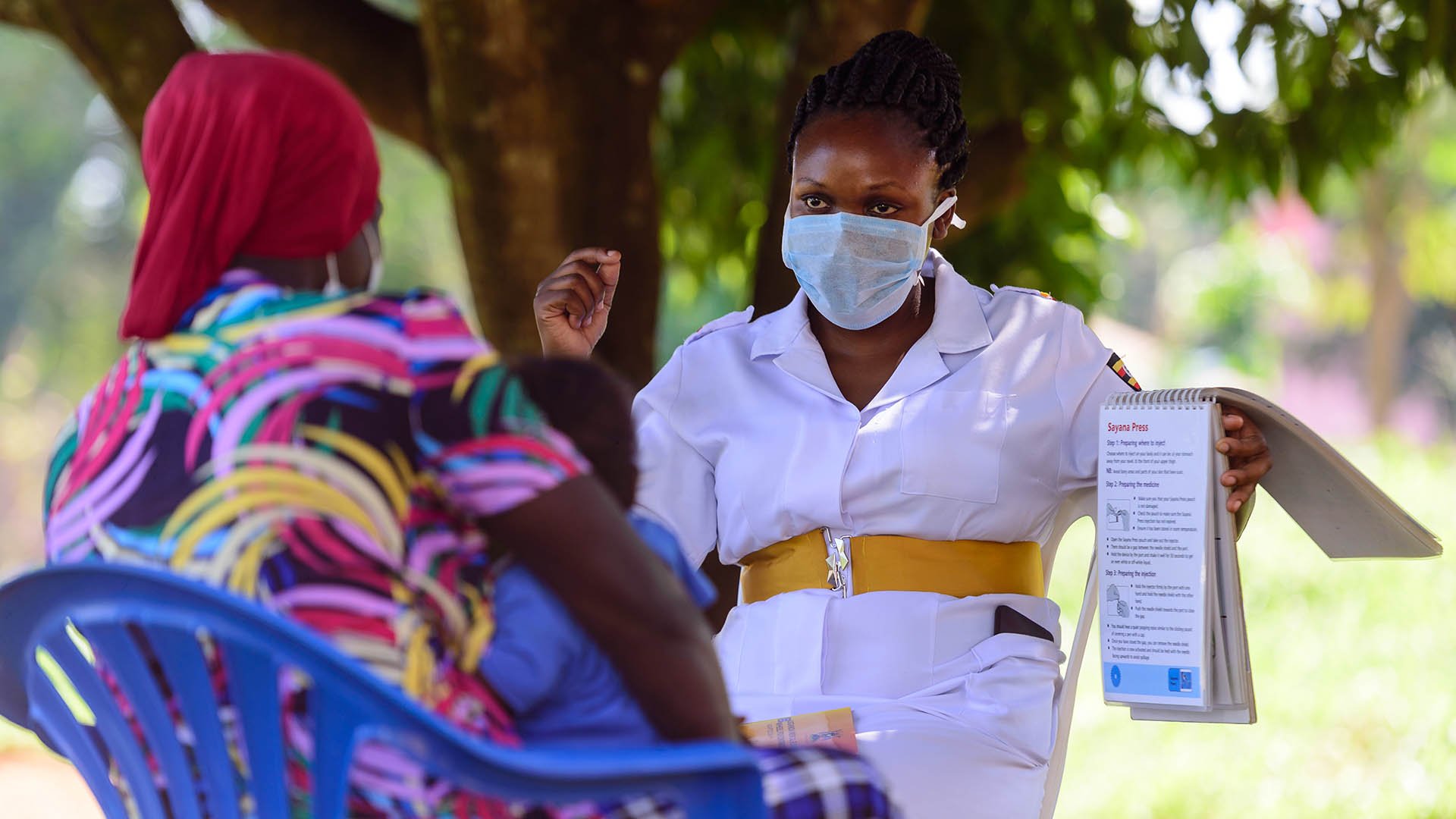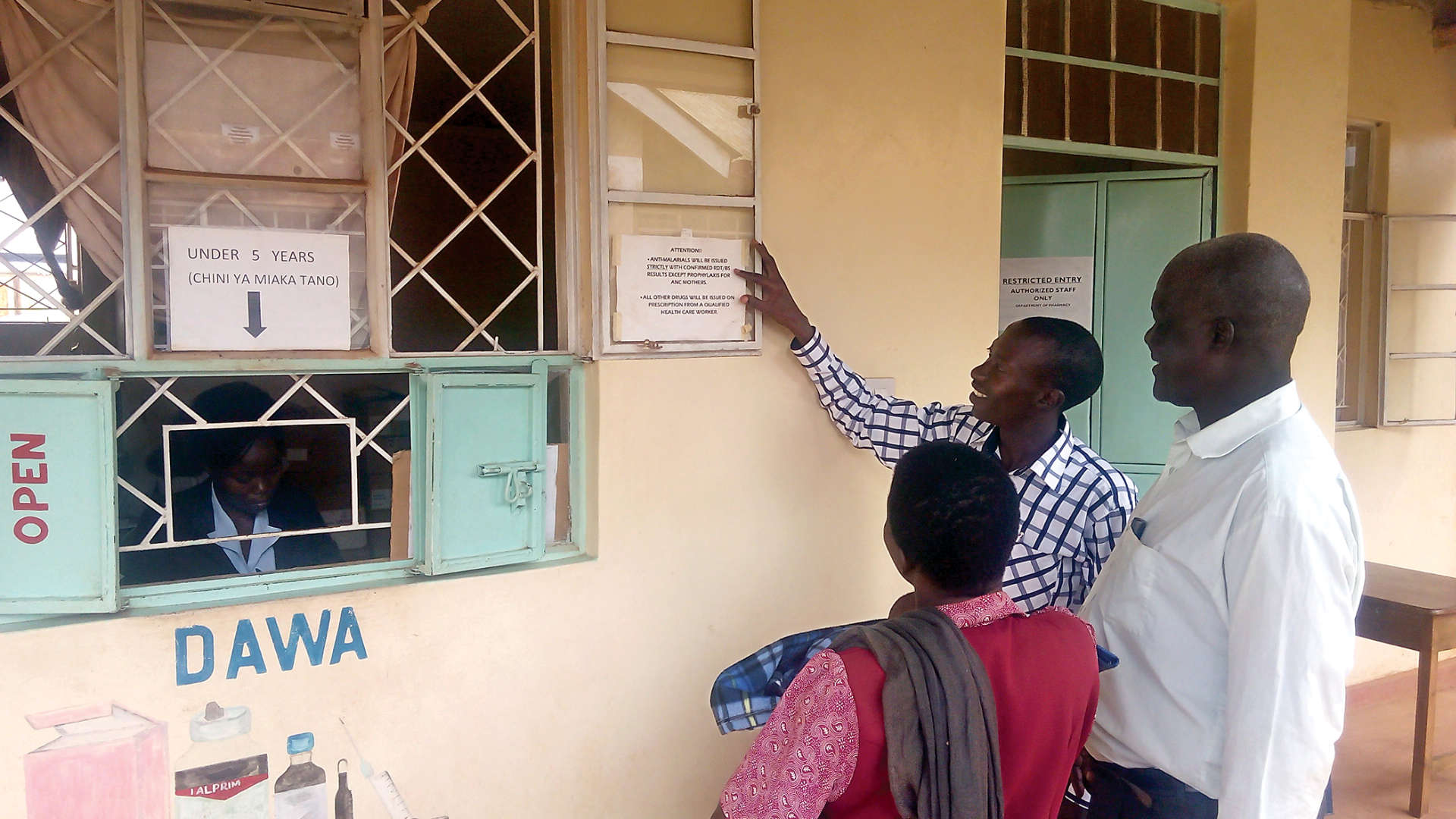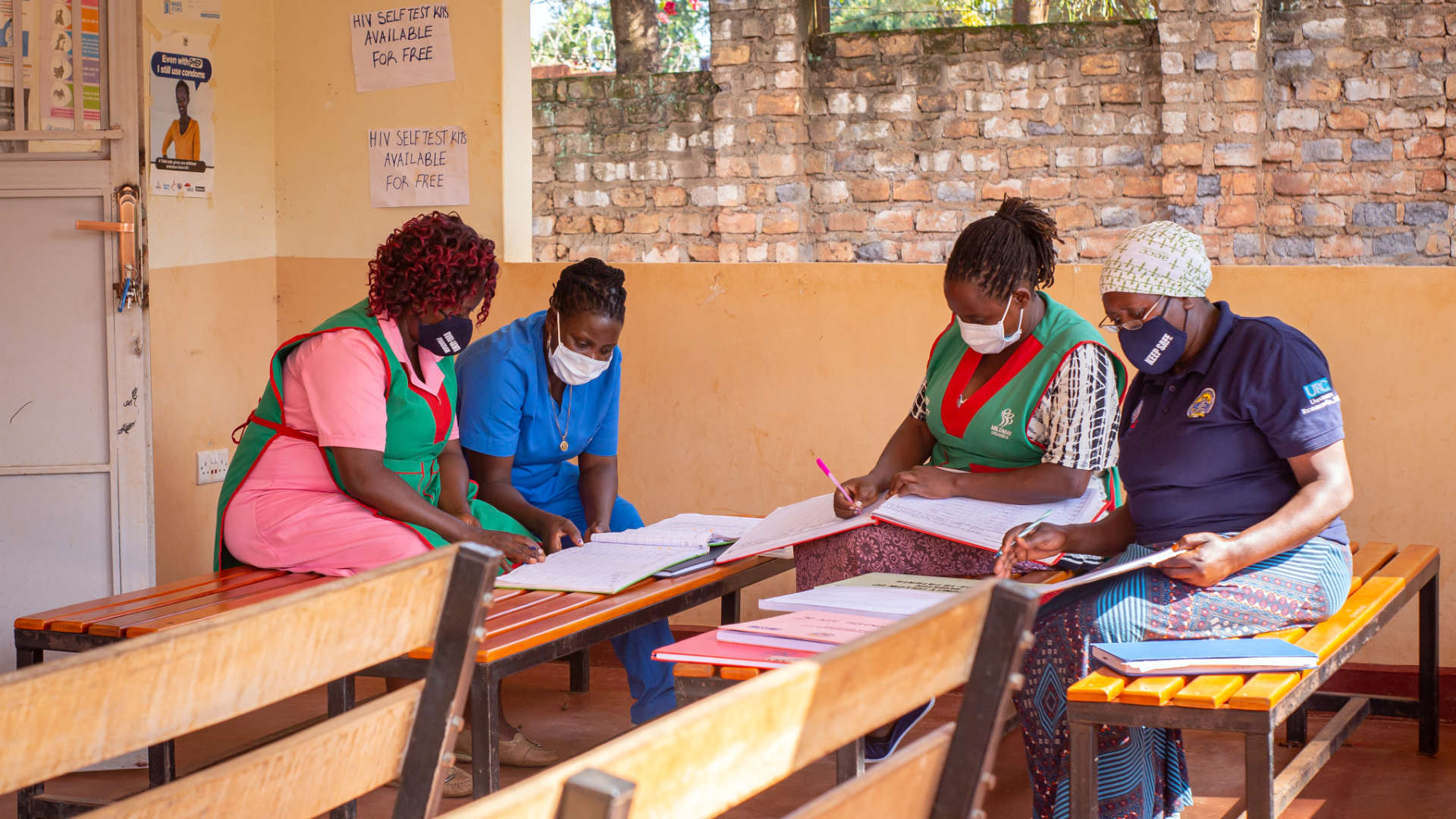Three years ago, twenty-six year-old Leah Okumu was diagnosed with HIV and initiated on antiretroviral treatment (ART).
Leah now lives with her husband, son, and daughter in the Dabani subcounty of Busia District in East Central Uganda, where she receives HIV treatment at the ART clinic at Masafu Hospital. Her daughter receives care there, too, after Leah voluntarily brought her for testing, which yielded a positive diagnosis.
Leah’s husband has declined HIV testing. She worries that he would be upset if Leah had their son tested.
“My son is very close to his dad,” Leah said, “and I feared that if he was tested, the results would be positive, and my husband would blame me.”
In July 2021, a counselor at the ART clinic in Masafu Hospital reached out to Leah to ask if she had any other children besides her daughter – if so, they would also need to test them for HIV. Leah confirmed that she also had a son. When the counselor encouraged Leah to bring her son to the clinic for testing, Leah said she wanted to, but was afraid to test him without her husband’s consent. The counselor offered to visit their home to talk to Leah’s husband. The counselor made the visit and obtained consent.
The counselor reassured Leah’s husband that if his son tested positive, it would allow the child to begin treatment immediately, reducing his chances of falling sick. The test results confirmed that the son was HIV positive, and he was immediately initiated on ART. Leah was relieved that her son received the care he needed.
“I’m so glad my husband and I agreed to have our children tested for HIV,” she said. “I am optimistic that they are going to live long healthy lives.”
Missed Opportunities to Test and Treat
The rigorous case identification of Leah’s family members at risk of having HIV was spearheaded with technical support from the USAID Regional Health Integration to Enhance Services in East Central Uganda (RHITES-EC) Activity.
Health workers at Masafu Hospital had identified gaps and missed opportunities in HIV service delivery after discovering during a facility performance review meeting that by end of February 2021 that only 15% of people living with HIV (PLHIV) in care had children or siblings in care with documented HIV status. These individuals were not yet captured through the existing index tool, which captures spouses and partners of PLHIV.
Quality Improvement Team Reaches HIV-Exposed
As a result of these findings, the RHITES-EC Activity supported Masafu Hospital to initiate a quality improvement project to increase the proportion of index patients’ – patients enrolled in HIV services with untested household members – children and siblings tested, and appropriately initiated on treatment for HIV.
The improvement team developed a clear flowchart for work and assigned roles and responsibilities along the care continuum to improve capture of potential positive HIV cases. The index client line-listing team – which includes HIV testing volunteers, “expert” clients, HIV counselors, and linkage facilitators – used a family tracking tool to develop line lists of children and siblings of PLHIV in care with unknown HIV status. Next, the HIV counselors called the index clients to schedule testing appointments for their untested partners, children, and siblings of unknown status.
The index testing activity specifically aims to address missed opportunity for testing children and siblings of PLHIVs in care. For those experiencing difficulty reaching the HIV clinic, the counselors visited their homes and offered testing at more convenient locations.
The outreach was complemented by health talks with PLHIV in care on HIV clinic days covering the benefits of testing children and siblings with unknown HIV status. A weekly pediatric HIV audit tool was adopted to determine gaps or missed opportunities to deliver services to children with unknown HIV status.
Increased Testing and Treatment of Children and Siblings
These efforts have contributed to an increase in the proportion of exposed children and siblings tested for HIV who now have a documented HIV status at Masafu Hospital – with numbers increasing from 15% in February 2021 to 70% in September 2021.
At a regional level, RHITES-EC uses a collaborative learning approach to share lessons learned implementing the pediatric audit tool at 131 facilities in East Central Uganda.
Over the past six months, use of the tool has led to an increase in the proportion of children of index clients with a documented HIV status from 51% to 92% in the region.
Families like Leah’s now have a chance to live healthier, longer lives.



